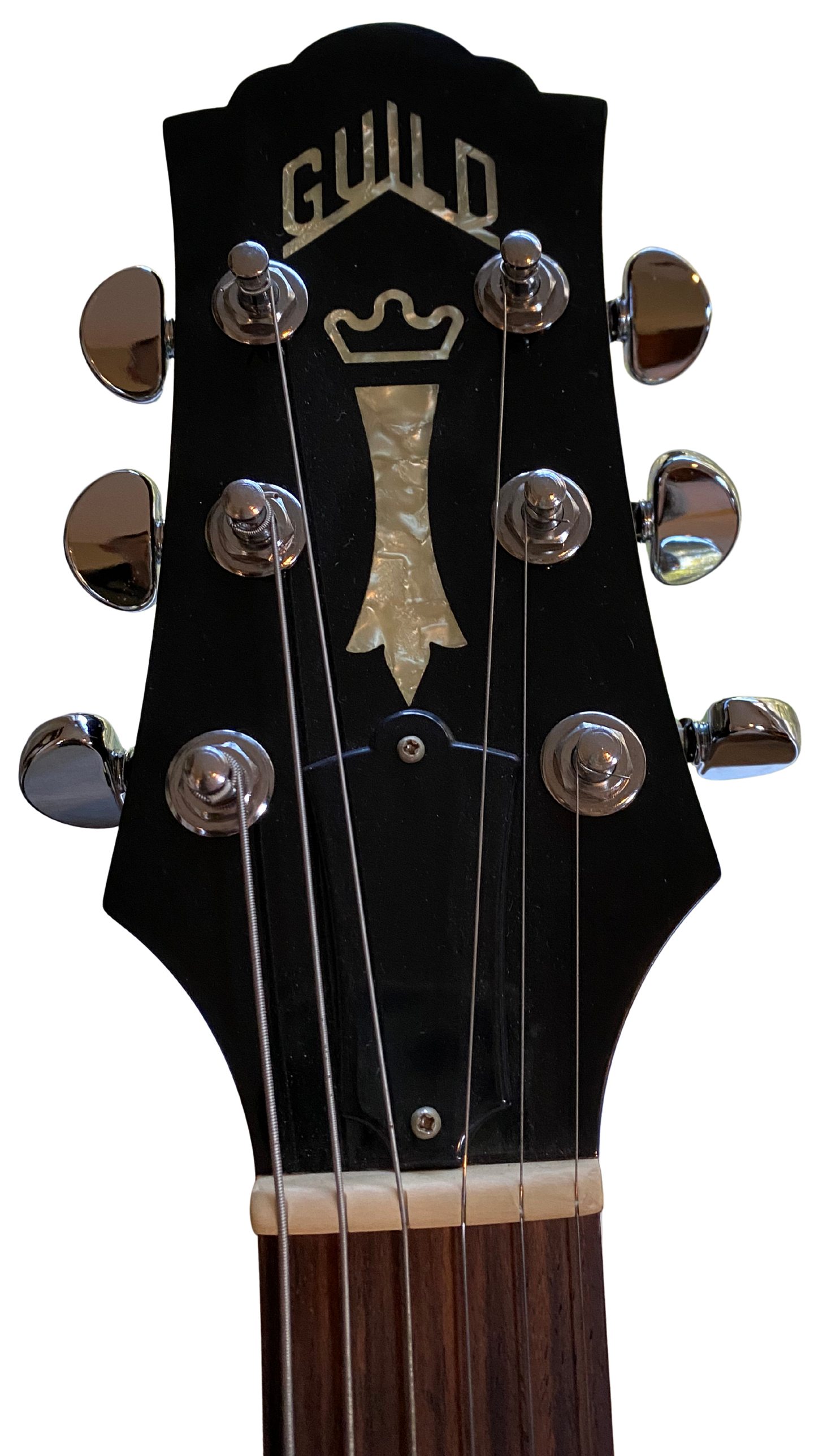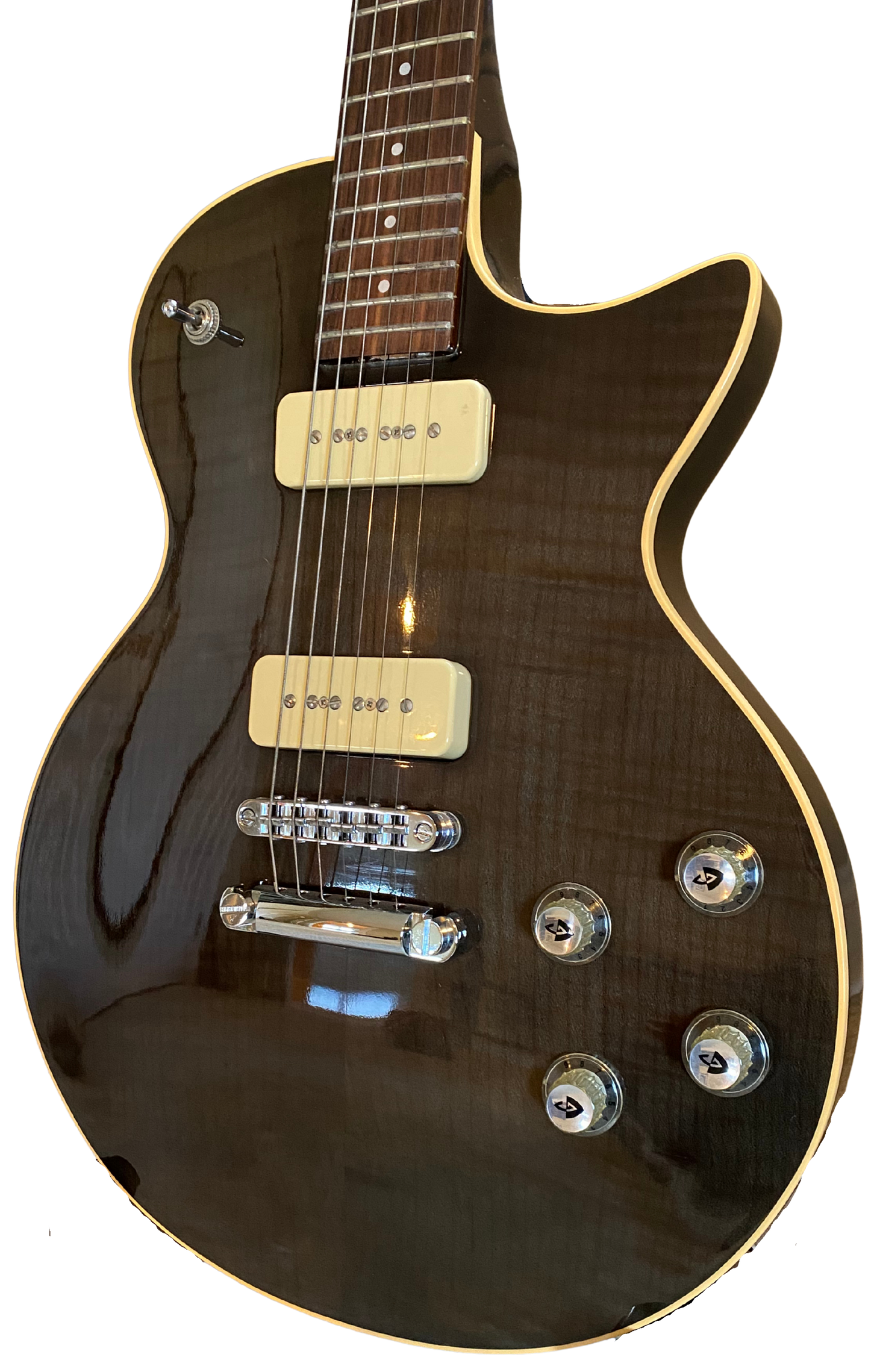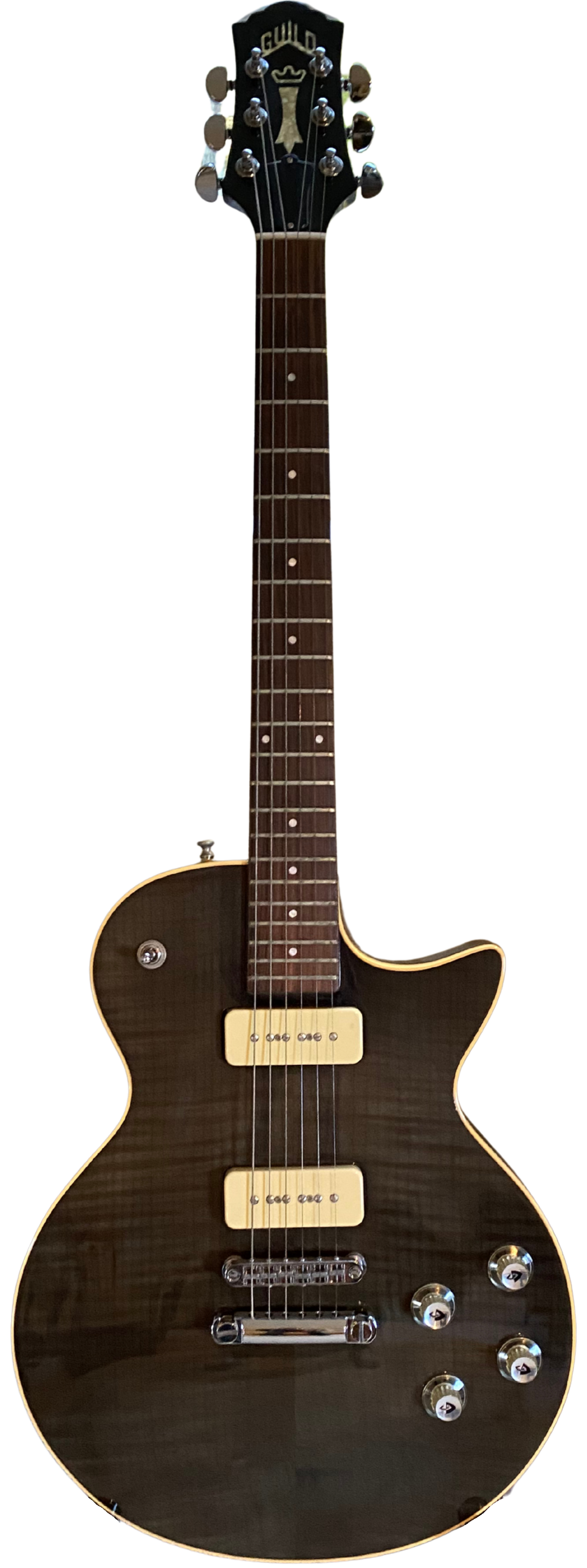Guild Blues 90
2007 Guild electric guitar
The Guild Guitar Company was founded in 1952 by Alfred Dronge, a guitarist and music store owner based in New York. Their first shop opened in Manhattan and focused on building electric and acoustic archtop jazz guitars. Several of the early Guild employees were former Epiphone workers who lost their jobs following their 1951 strike and the subsequent relocation of the company from Queens to Philadelphia.
Duane Eddy was an early endorser and worked with Guild on a signature model guitar which he used in the early days and throughout his career.
As Guild’s guitar models gained in popularity they needed to expand to a larger facility so they moved production from Manhattan to Hoboken New Jersey. By the early 1960’s the folk music craze was in full swing. Guild management shifted the company into production of a line of acoustic folk and blues guitars including a dreadnought series (the Guild D-40, D-50 and D-55). These models competed successfully with Martin D-18’s and D-28’s at that time..
Guild eventually sold the company to Avent Corporation who moved production again to Westerley Rhode Island in 1966. By then, the folk scene was starting to quiet down and a new generation of folk-rockers started to play Guild guitars, most notably Ritchie Havens used a D-40 at Woodstock in 1969. During the 60’s Guild also started to focus on making electric guitars and released popular models like the Starfire, S-200 and S-100. In the 1950’s Guild produced the M-75 Aristocrat which was a single cutaway semi-hollow body, electric guitar with a solid top and no F-holes. The M-75 eventually evolved into the Bluesbird in the 70’s. The Bluesbird closely resembled a Gibson Les Paul with a single cutaway and dual humbuckers. Similar to the M-75 it was a semi-hollow electric with solid top, making it a bit lighter than a Les Paul.

The 70’s and 80’s were challenging for the Guild company, but they continued to produce high quality guitars in their Rhode Island factory. After several management and ownership changes, they were eventually bought by Fender in 1995. In 2001 Fender decided to close the Rhode Island factory and move production of Guilds out to Corona California. In 2008 Fender stopped making Guild electric guitars and moved acoustic guitar production to New Hartford CT when it acquired Kaman Music Corp.
This Blues 90 model was based off of the Bluesbird and was one of few electric guitars made in the Fender Corona California factory before they stopped making electrics in the U.S all together.

The Blues 90 had P-90 pickups instead of the humbuckers that were traditionally used in the BluesBird. This one has a transparent black finish. It came with a Semi-hollow body; 1-piece mahogany back and sides with 2-piece carved maple top, single bound top. A one piece mahogany neck with rosewood fretboard and dot inlays. 24 ¾ inch scale with 22 frets and a 1 11/16 inch nut width. Crome Gotoh Adjusto-matic tuners and a stop tailpiece. Two volume and two tone knobs and a 3-way toggle switch very similar to a Les Paul layout.
Information about them is limited, however based on what I’ve been able to find, Fender made them from about 2005 - 2007.
These are real hidden gems and you don’t see them come up for sale often. It has a big neck, it’s light-weight and the Seymour Duncan P-90’s sound fantastic. It’s a total blues machine, high quality American made instrument and excellent alternative to a Les Paul.



